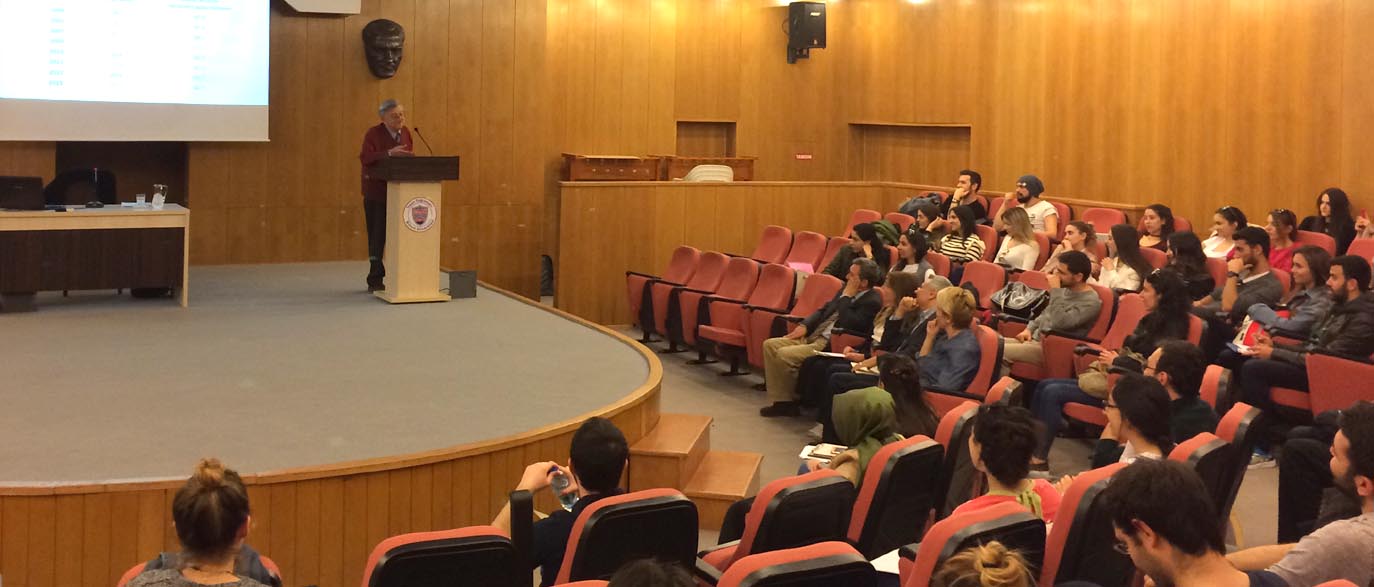 Last week, the GE 440s series of FEASS Transdisciplinary Senior Project courses hosted Prof. Korkut Boratav, a pioneer in political economy and economic history whose work has helped the global scholarly community as well as the interested public understand the Turkish political economy. The event was an intergenerational gathering, bringing a younger cohort of economics, political science and international relations majors together with a veteran of the study of not only economics but all the social sciences in Turkey.
Last week, the GE 440s series of FEASS Transdisciplinary Senior Project courses hosted Prof. Korkut Boratav, a pioneer in political economy and economic history whose work has helped the global scholarly community as well as the interested public understand the Turkish political economy. The event was an intergenerational gathering, bringing a younger cohort of economics, political science and international relations majors together with a veteran of the study of not only economics but all the social sciences in Turkey.
After an introduction by FEASS Dean Erinç Yeldan, Prof. Boratav began by introducing various conceptual definitions of income distribution. As a scholar of political economy, he proposed to deconstruct national income by examining class-based incomes. He offered empirical evidence showing how the incomes of different segments have evolved in Turkey during the last four decades, emphasizing the impact of politics on economic outcomes. Prof. Boratav then focused on the period after 2000, sharing evidence demonstrating that the incomes of working class members as well as farmers continued to erode in relative terms.
Turning to the political implications, Prof. Boratav noted that despite these developments, Turkey did not see political change over this period. The main reason for this stability, he explained, was a host of compensatory transfer mechanisms. These included the sustained consumption patterns of the masses, which have been supported by a credit boom made possible by the international context as well as expanding social expenditures at all levels of government. Prof. Boratav concluded his talk by arguing that this regime has remained stable as long as the electorate has continued to focus on their absolute, and not relative, gains.
The seminars in the FEASS Transdisciplinary Senior Project series are not only instrumental in encouraging FEASS seniors to focus on big, real-world questions, but also provide an opportunity for prospective leaders to meet influential figures in the worlds of policy practice, civil society and business as well as academia.
